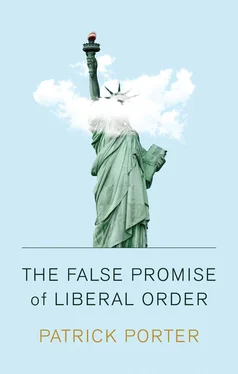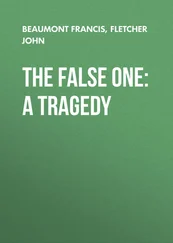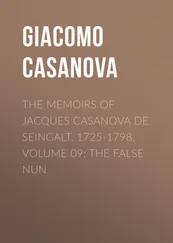Patrick Porter - The False Promise of Liberal Order
Здесь есть возможность читать онлайн «Patrick Porter - The False Promise of Liberal Order» — ознакомительный отрывок электронной книги совершенно бесплатно, а после прочтения отрывка купить полную версию. В некоторых случаях можно слушать аудио, скачать через торрент в формате fb2 и присутствует краткое содержание. Жанр: unrecognised, на английском языке. Описание произведения, (предисловие) а так же отзывы посетителей доступны на портале библиотеки ЛибКат.
- Название:The False Promise of Liberal Order
- Автор:
- Жанр:
- Год:неизвестен
- ISBN:нет данных
- Рейтинг книги:4 / 5. Голосов: 1
-
Избранное:Добавить в избранное
- Отзывы:
-
Ваша оценка:
- 80
- 1
- 2
- 3
- 4
- 5
The False Promise of Liberal Order: краткое содержание, описание и аннотация
Предлагаем к чтению аннотацию, описание, краткое содержание или предисловие (зависит от того, что написал сам автор книги «The False Promise of Liberal Order»). Если вы не нашли необходимую информацию о книге — напишите в комментариях, мы постараемся отыскать её.
The False Promise of Liberal Order
The False Promise of Liberal Order — читать онлайн ознакомительный отрывок
Ниже представлен текст книги, разбитый по страницам. Система сохранения места последней прочитанной страницы, позволяет с удобством читать онлайн бесплатно книгу «The False Promise of Liberal Order», без необходимости каждый раз заново искать на чём Вы остановились. Поставьте закладку, и сможете в любой момент перейти на страницу, на которой закончили чтение.
Интервал:
Закладка:
Thus far, constant reaffirmation is not faring well. It is not easing the present disorder, nor converting alienated voters, nor dampening the ambitions of America’s rivals. Cross-sections of voters report that the notion of liberal order baffles and underwhelms them, while the majority of veterans agree with the majority of the general public that America’s wars in Afghanistan, Iraq, Libya and Syria were wasteful. 25For those in the audience with doubts, it feels more like being ‘preached at’ than being informed. 26
The claim that America’s order was exceptional, and the hegemony/ empire distinction, echoes the exceptionalist claims of previous great powers. It is an old conceit. It dates back at least to nineteenth-century Britain, another time of dispute over the relation between liberalism and empire. The Victorian historian and banker George Grote projected the same fantasy, of non-imperial hegemony, onto classical Greece, distinguishing Athens’s benign leadership of a coalition from oppressive Persian overlordship. The Greeks, however, used the terms ‘hegemony’ and ‘empire’ interchangeably. 27They had a point. For even between ‘friends’ in the international arena, interests eventually diverge. When they do, even benign stronger powers have a habit of bringing their strength to bear.
Euphemizing the exercise of power, this worldview should not survive interrogation. It simply leaves out too much contrary history. It over-privileges the peaceful centres of the American order – Western Europe and East Asia – when the order defined itself also in the zones where power was most contested. It fails to account for the most consequential event in post-war American public life, the Vietnam War. Like all hegemons, Washington for long periods loosened its restraint, exerting itself violently to save face, project credibility and sustain authority, and ignored rules as it suited.
Yet talk of liberal order proliferates. It has become the lingua franca of the Atlantic security class. Such is the consistency and unity of their language, and so close is their social network through conclaves in Aspen, Davos, Munich, Harvard, the Brookings Institute or the Council on Foreign Relations, and the revolving door between think-tanks, government, foundations, universities and media commentary, that the coalition of those who call for a return to a liberal order can be regarded as a class in itself, with its own dialect. 28
In our age of complex realignment, the question of order also cuts diagonally across old lines, creating new coalitions. Hawkish internationalist Republicans and Democrats make common cause against Trump and the order’s enemies. 29Neoconservatives, committed to heroic greatness, subdivide on the question of liberalism, some enlisting in bipartisan resistance against Trump, others joining his administration. 30The question even divides the Trumpists. Secretary of State Mike Pompeo declared the pursuit of a new liberal order based on the principle of national sovereignty, after which there emerged a starker conception of primacy, defined as ‘We’re America, Bitch’. 31A group of the president’s ministers, who chafe at some elements of the liberal order – for example, adherence to institutions – have tried to tilt their erratic boss back into the orthodoxy of US hegemonic leadership. This is not a simple story.
Advocates of the ‘liberal order’ believe it was a good thing, and worth defending. 32It was, they argue, a constellation of ‘bargains, institutions and social purposes’ 33created under the leadership of the post-war USA. As the dominant state, with its favourable geography, economic and demographic size and military preponderance, America shaped ‘the rules of the game by which international politics is played, the intellectual frameworks employed by many states, and the standards by which behaviour is judged to be legitimate’. 34For admirers, this was a profound project that rewired the world. They periodize it as a more-or-less continuous set of arrangements that lasted for more than seventy years from the Allied victory in 1945. America created a constitutional order as opposed to unchecked power, a system that was fundamentally consensual, benign and open. The order’s longevity, stability and attraction rested on these liberal ideological foundations. This system constituted a harmony of interests, in that it was both good for America and good for the world.
Traditionalists share a vocabulary, historical reference points and logic, though what they mean precisely by ‘order’ varies. Some use the term loosely as a proxy for the general benevolence of American primacy. Others make more specific and ambitious claims about how that world once worked. All defend liberal order as a historical creation that rescued a world from depression, totalitarianism, world war and genocide. Most propose it as a model for the future, if only others would share their vision. Their pessimism varies. Some argue that the order is collapsing with America’s ‘retreat’ and the rise of barbaric forces at home and abroad, and that the best we can do is salvage what we can. Others hope that even as an internal schism divides the West, the order created by America can outlive its principal architect.
In opposition, there are sceptics. 35Most of these argue that liberal order is a false promise, a master concept that will do more to hinder than to help us pick our way through the chaos. They note the gap between nostalgia and history, and that the post-war world was never ‘whole’. There may be ‘islands of liberal order, but they are floating in a sea of something quite different’. 36Most favour a more restrained grand strategy – less militarized, more accommodating, less driven to expansion. Some are isolationists, favouring bringing America home from its overseas commitments. Many are not – including this author. In their shared opposition to centrist orthodoxy, sceptics derive from a mixed and overlapping grouping of academic realists, anti-war conservatives and progressive-leftist internationalists, though there is also a group of primacists who maintain that the USA should still pursue dominance abroad but without extravagant projects to export democratic capitalism. In common, they challenge visions of liberal order as a once-achieved fact to which we can return. Such memories are ahistorical, and therefore no answer to the present predicament. Indeed, they are part of the problem. As a ‘mytho-history’ that provides an account of origin and a guide to action, the false memory of liberal order obscures what power politics involves. And it turns attention away from where it can lead, especially when the powerful inhale their own mythology. The task should not be to adapt, reform, refresh, repackage or rebrand this vision. That vision put the USA where it is now: saddled by unsustainable debt, stifled by excessive and unaccountable state power, struggling through multiple failed wars, on collision course with rivals in Europe, the Middle East, Asia and Latin America, and helmed by Trump. The prudent response is instead to correct, or at least restrain, its flaws.
Beyond that baseline argument, sceptics are a more heterogenous lot. They disagree with one another about whether there really was a liberal order or whether there can be. Some argue there was, at least once the USA become the unipolar primate and, unfettered, ran amok. Others celebrate liberal progress but claim that American hegemony had little to do with it. Still others complain that there ought to have been such an order, but it was absent. They call on Washington to practise what it preaches and obey the rules it insists others obey, suggesting that we could have such an order if only the hypocrisy were to end. 37Thus there are unresolved arguments within the sceptics’ camp about whether liberal order is desirable or possible.
Читать дальшеИнтервал:
Закладка:
Похожие книги на «The False Promise of Liberal Order»
Представляем Вашему вниманию похожие книги на «The False Promise of Liberal Order» списком для выбора. Мы отобрали схожую по названию и смыслу литературу в надежде предоставить читателям больше вариантов отыскать новые, интересные, ещё непрочитанные произведения.
Обсуждение, отзывы о книге «The False Promise of Liberal Order» и просто собственные мнения читателей. Оставьте ваши комментарии, напишите, что Вы думаете о произведении, его смысле или главных героях. Укажите что конкретно понравилось, а что нет, и почему Вы так считаете.












